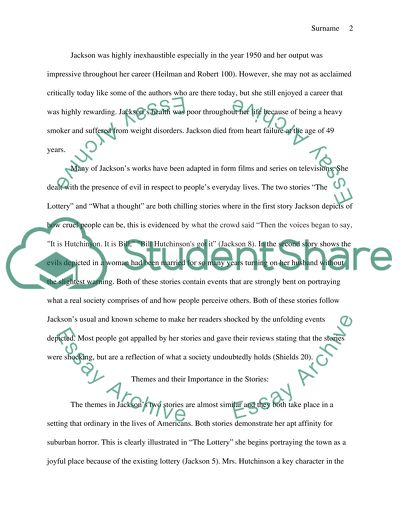Cite this document
(“The Lottery and What a Thought by Shirley Jackson Research Paper”, n.d.)
Retrieved from https://studentshare.org/literature/1447608-discuss-the-stories-themes-and-their
Retrieved from https://studentshare.org/literature/1447608-discuss-the-stories-themes-and-their
(The Lottery and What a Thought by Shirley Jackson Research Paper)
https://studentshare.org/literature/1447608-discuss-the-stories-themes-and-their.
https://studentshare.org/literature/1447608-discuss-the-stories-themes-and-their.
“The Lottery and What a Thought by Shirley Jackson Research Paper”, n.d. https://studentshare.org/literature/1447608-discuss-the-stories-themes-and-their.


